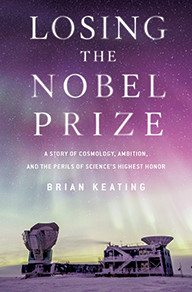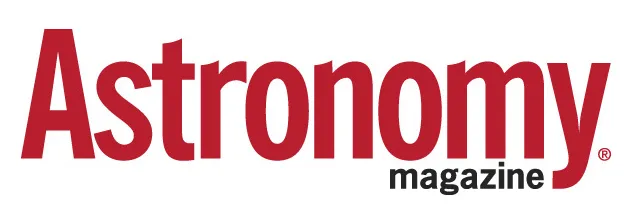Losing The Nobel Prize
Losing The Nobel Prize
The inside story of a quest to unlock one of cosmology’s biggest mysteries, derailed by the lure of the Nobel Prize. What would it have been like to be an eyewitness to the Big Bang? In 2014, astronomers wielding BICEP2, the most powerful cosmology telescope ever made, thought they’d glimpsed the spark that ignited the Big Bang.
Millions around the world tuned in to the announcement, and Nobel whispers began to spread. But had these cosmologists truly read the cosmic prologue or, driven by ambition in pursuit of Nobel gold, had they been deceived by a galactic mirage? In Losing the Nobel Prize, cosmologist Brian Keating―who first conceived of the BICEP (Background Imaging of Cosmic Extragalactic Polarization) experiments―tells the inside story of BICEP2’s detection and the ensuing scientific drama.
Along the way, Keating provocatively argues that the Nobel Prize actually hampers scientific progress by encouraging speed and competition while punishing inclusivity, collaboration, and bold innovation. To build on BICEP2’s efforts to reveal the cosmos’ ultimate secrets―indeed, to advance science itself―the Nobel Prize must be radically reformed.

Selected as one of the Best/Favorite Science Books of the Year at Science Friday, Amazon, Science News, Physics Today, Forbes, Symmetry Magazine, and Starts with A Bang!
- From Goodreads
- Indigo
- hive
- Amazon
- Books in a Million
- Barnes & Noble
- Indiebund
- Powell's
- iTunes
- From The Publisher
- Press Release
REVIEWS & ENDORSEMENTS
“Brian Keating's riveting new book tells the inside story of the search for cosmic origins, emphasizing the influence of Nobel dreams and laying bare the question of whether the lure of grand prizes is ultimately a good thing for science.”
In this riveting personal account, Brian Keating writes frankly of his challenges, frustrations, and motivations during the years spent building and operating the instruments used to tackle one of the most fundamental problems in science: how our universe began.
I loved this well-told tale of science, passion, and the pursuit—literally to the ends of the earth—of life’s purest questions. Brian Keating weaves together a must-read drama of big dreams, awe-inspiring technology, and a belief in the power of science to solve any puzzle. He is thoroughly modern and forward facing, questioning the veneration of the Nobel Prize, and making the case with his heartfelt story that the real prize is in the science itself.
Our most august institutions—government, billion-dollar corporations, and even staid academia—are rife with human politicking and raw ambition. In Losing the Nobel Prize, Brian Keating describes just some of that jockeying and maneuvering among the smartest people in the world, studying the most abstruse and fundamental knowledge, while chasing humanity's greatest honor. Along the way, Keating provides understandable explanations of the more mind-bending aspects of modern cosmology, and just what we know about our universe.
A fascinating blend of personal history and an honest behind-the-scenes look at high-stakes science. Brian Keating was at the origin of what appeared to be one of the most exciting discoveries in modern cosmology. His vivid storytelling brings humanity’s search for the origin of the Universe to life.
Cosmologists had thought that they had glimpsed a distant image of the first moments of the universe. Instead, this image turned out to be ‘smudge on the window’: galactic dust once again bedeviling cosmologists. Keating conveys this exciting search through a personal tale of the ups and downs of cutting edge science.
In Losing the Nobel Prize, Brian Keating shares a view from the jagged frontiers of scientific exploration, offering fresh insights into the passions, ambitions, and competition that drive many researchers today. A fascinating journey.
According to Brian Keating, the Oscar and Nobel science prizes have a lot in common. In Losing the Nobel Prize, he weaves together the Nobel Prize institution, his personal life, and his own involvement in modern cosmology into a multi-facetted and highly readable story. Providing a vivid picture of the adventurous and competitive world of cosmological research, he also suggests radical reforms to the venerable but perhaps outdated Stockholm institution.






